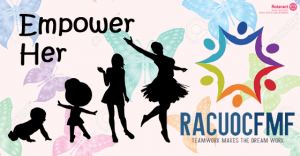Women’s equality has become one of the hot topics at present. Unlike in the past, today, women’s equality is not simply a battle against sexism. Instead, women’s equality has turned into a far-reaching socio-economic concern.
Equality for women does not simply mean the creation of an equal men to women participation ratio in economic activities. Instead, the concept of equality for women focuses on better politics, a more vibrant economy which is based on a workforce which uses the diversified talents of the whole population and most importantly a more accepting society which no longer hides under the veil of sexism.
Sri Lankan Context
Sri Lanka takes the pride in not only electing the world’s first female Prime Minister, Mrs. Sirimavo Bandaranayake in 1960 but also the country’s first female President Mrs. Chandrika Bandaranayake Kumarathunga in 1994. Sri Lanka has hence been portrayed as a country which has made significant progress in respect to women’s rights.
Sri Lanka is ranked 75th out of 149 countries in the Gender Inequality Index (GII) with a GII of 0.383. While Sri Lanka ranks in the middle of the global rankings, it is ranked high in comparison to its neighboring countries. While Sri Lanka performs well in relation to reproductive health and equality in education, one of the main drawbacks the country faces is the female labor force participation where only around 35% of the women actively participate in the labor force when more than 51% of the country’s population comprises of females.
Causes
A major factor which has created the aforesaid problem in Sri Lanka, is the patriarchal cultural background which prevails within the country. The problem of gender inequality evidently does not start at the labor market, instead its roots expand right into our own family units. Inequality starts from the crib, right from the point where the parents decide to paint the walls around a child’s crib in pink or blue and surround the child with pink or blue bedding based on the child’s gender.
The child is taught how to behave based on the gender by the parents and even by the education system. A child is taught that they should dress and even play in a manner which is appropriate to their gender. Even advertising within the country has played a prominent role in creating gender stereotypes and portraying women as a more emotional creature and men as a more intellectual creature who is also supposed to be the bread winner.
This environment has resulted in a psychological phenomenon where men overtly or covertly sees women as being weaker than them and where women end up thinking that certain things are impossible, thus creating the need for empowerment.
Rotaract for women
Rotaract movement has empowered women over the years in numerous ways. However, how Rotaract would impact women could be categorized into two broad categories.
Firstly, Rotaract has empowered women through creating true female leaders. Bearing the motto “self-development – Fellowship through service” the movement firmly believes that each individual should be given ample, boundless opportunities to develop themselves to serve the community, which in return has created the opportunity for many young women to join the movement to explore their potential to become strong, impactful leaders who play their part to develop the society and the economy. The best examples being our very own District Rotaract Representative Rtr. PP. Anuradha Senanayake and of course the composition of the Board of Directors of our own club which comprises of close to 70% female representation.
Secondly, the movement has created the background for the initiation of impactful projects aimed at empowering women and uplifting their standard of living. The movement has further emphasized on this fact at the recently held 27th Rotaract District Assembly, by awarding the most outstanding community service project under the category of “maternal and child healthcare” to project “Andurata Eliyak” initiated by the Rotaract Club of Edulink International Campus.
RACUOCFMF itself has focused greatly on empowering women and has come-up with a number of impactful projects such as “Project HOPE” which focused on creating employment opportunities for women who are parenting differently abled children. The club continues to address this issue with a number of new initiatives this year as well, starting with an impactful project which would be carried out next month.



